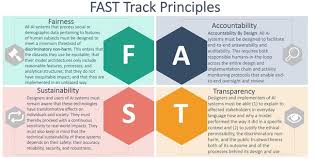The Imperative of Ethical AI in Federal Civilian Agencies
As artificial intelligence (AI) continues to advance, the imperative for ethical implementation in federal civilian agencies has never been more critical. With the power to transform public sector operations, AI presents both unparalleled opportunities and significant ethical challenges. It is incumbent upon these agencies to navigate this new landscape with a commitment to responsibility, transparency, and the societal impact of their AI systems.
Strategies for Responsible AI Integration
To effectively integrate AI, agencies must develop strategic and informed approaches that consider the ethical dimensions of technology deployment. This involves establishing clear guidelines for AI usage, emphasizing the importance of data privacy, and ensuring algorithmic fairness to prevent biases that could adversely affect the public.
Challenges and Opportunities
The path to ethical AI is fraught with challenges, including the potential for unintended consequences and the need for ongoing oversight. However, the opportunities to enhance efficiency, improve services, and streamline decision-making processes offer compelling reasons to pursue AI integration conscientiously and ethically.
Focusing on Societal Impact
AI technologies have the potential to significantly impact society. Federal agencies are tasked with ensuring that the deployment of AI tools benefits the public, mitigating risks, and fostering an environment where technological innovation can coexist with ethical considerations.
Future Directions
The landscape of AI is ever-evolving, and as such, federal agencies must remain agile, continuously updating their strategies to align with ethical standards. By doing so, they can harness the power of AI to serve the public good while upholding the values of a democratic society.
